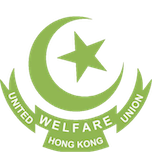Project Description
“Intercultural dialogue is an open and respectful exchange of views between individuals and groups belonging to different cultures that leads to a deeper understanding of the other’s global perception.” – Council of Europe
Our cultural and religious environment is changing quickly and becoming more and more diversified. Cultural diversity is an essential condition of human society, brought about by cross-border migration, the claim of national and other minorities to a distinct cultural identity, the cultural effects of globalization, the growing interdependence between all world regions and the advances of information and communication media. More and more individuals are living in a “multicultural” normality and have to manage their own multiple cultural affiliations.
Cultural diversity is also an economic, social and political plus, which needs to be developed and adequately managed. On the other hand, increasing cultural diversity brings about new social and political challenges. Cultural diversity often triggers fear and rejection. Stereotyping, racism, xenophobia, intolerance, discrimination and violence can threaten peace and the very essence of local and national communities.
Dialogue between cultures, the oldest and most fundamental mode of democratic conversation, is an antidote to rejection and violence. Its objective is to enable us to live together peacefully and constructively in a multicultural world and to develop a sense of community and belonging.
